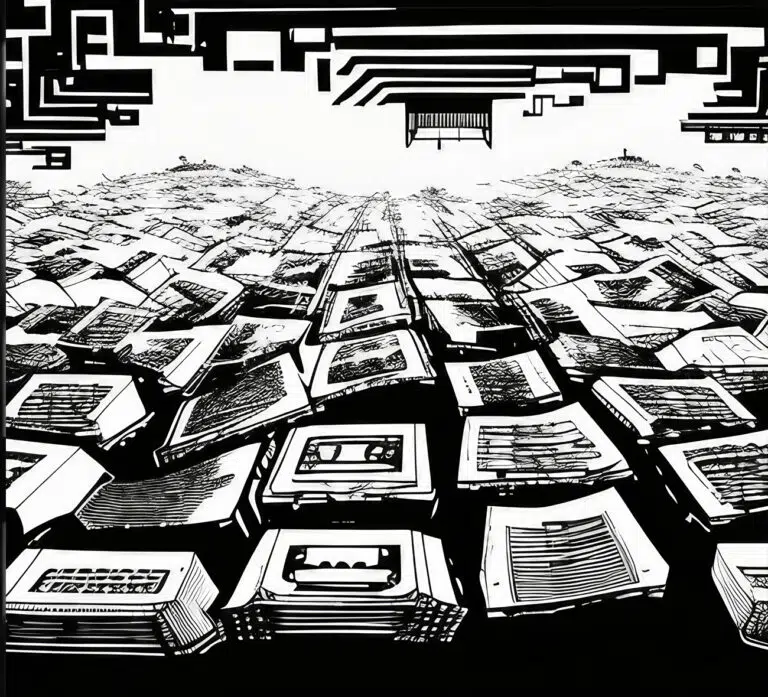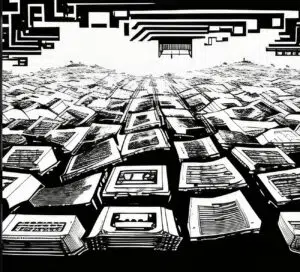The esports and video gaming industries are about to go through a big change. Distributed Ledger Technology (DLT) is ready to transform how identity and content ownership work, giving users and developers more control than ever. This article looks into how DLT technologies, especially those allowing people to have full ownership and control of their identity and content, are all set to change the esports and video game fields.
DLT Tech
DLT, such as blockchain and Directed Acyclic Graph (DAG) technologies, provides a decentralized method for storing data and validating transactions. In contrast to conventional centralised systems, DLT guarantees data immutability, transparency, and increased security.
Self-Sovereign Identity and Content Control
Self-Sovereign Identity (SSI), aka the SSDID (Decentralized ID) from NESTECH, empowers individuals to own and control their personal data without relying on centralized authorities. In gaming, this translates to players having full control over their in-game assets and identities, reducing fraud and enhancing trust.
The Intersection
The use of DLT in gaming tackles many industry issues like data breaches, unclear asset ownership, and hidden monetization models. By using DLT, the gaming world can boost security, transparency, and empower users better.
DLT
Distributed Ledger Technology (DLT) is a term that describes a digital system used to record transactions simultaneously across several locations. In contrast to regular databases, DLTs are decentralised, meaning there is no one central point that, if it fails, causes the whole system to fail, thereby boosting security.
Types : Blockchain technology, Directed Acyclic Graph (DAG) structure, and Hybrid Models combining both have been revolutionising the digital landscape. Blockchain acts as a secure digital ledger, DAG offers an alternative approach with its interconnected model, and Hybrid Models find a balance between the two, merging their strengths. Each plays a crucial role in shaping the future of decentralised systems, offering diverse solutions for various industries and applications.
DLT includes different models like blockchain and DAG. Blockchain has a linear chain of blocks, while DAG organizes data in a graph. Combining these, hybrid models enhance performance and security.
Advantages in Data Security and Privacy
DLT, with its decentralised structure, brings a substantial boost to data security and privacy. The process involves encrypting transactions and having them validated by numerous nodes, which greatly diminishes the chances of unauthorised parties tampering with data. Such measures are vital for safeguarding confidential details within the realm of gaming.
DLT, with its decentralised structure, brings a substantial boost to data security and privacy. The process involves encrypting transactions and having them validated by numerous nodes, which greatly diminishes the chances of unauthorised parties tampering with data. Such measures are vital for safeguarding confidential details within the realm of gaming. Moreover, this enhances user trust and ensures a seamless gaming experience, free from concerns of data breaches or manipulations.
Self-Sovereign Decentralized Identity (SSDID)
Self-Sovereign Identity, also known as SSI, is a groundbreaking concept that empowers individuals to take charge of their digital identities autonomously. In sharp contrast to conventional identity systems that are governed by central authorities, SSI is designed to grant users a high degree of independence and authority in managing their personal data. This innovative approach heralds a new era where individuals hold the reins when it comes to controlling and safeguarding their identity information, paving the way for a more secure and user-centric digital landscape.
Differs from Traditional ID Models
Traditional identity models rely on central authorities like governments or corporations, leading to privacy concerns and data breaches. SSI, powered by DLT, eliminates intermediaries, enhancing privacy and security.
Enabling SSDIDs
DLT serves as the foundation of SSI, offering a secure, unchangeable record for storing and confirming identities. Through DLT, users can easily handle their identities, guaranteeing data accuracy and minimising the chances of identity theft.
Content Ownership
In the gaming world today, ownership of content can often be unclear. Players invest time and money acquiring in-game items, but they typically lack complete ownership as developers govern these assets.
This dynamic has sparked debates within the gaming community and legal spheres. However, emerging technologies such as blockchain are offering solutions that could potentially shift this paradigm. Through blockchain, players may gain true ownership of their in-game assets, enabling them to buy, sell, and exchange items independent of developers’ control. This decentralised approach promises a new era where players truly hold the reins over their digital possessions, a concept with far-reaching implications for the evolving landscape of gaming and virtual economies alike.
Challenges
Gamers face issues such as loss of assets when games shut down and lack of control over in-game purchases. Developers struggle with piracy, fraud, and managing player data securely.
Potential to Revolutionize
DLT can address these challenges by enabling true ownership of in-game assets. With DLT, assets are tokenized and stored on a decentralized ledger, ensuring players retain ownership regardless of the game’s status.
Enhanced Integrity
DLT enhances security by decentralizing data storage and using cryptographic techniques for transaction validation. This reduces the risk of data breaches and ensures the integrity of game data.

True Ownership of In-Game Assets
DLT allows for the tokenization of in-game assets, giving players true ownership. These assets can be traded, sold, or transferred independently of the game, creating a new economy within the gaming ecosystem.
Transparent and Fair Monetization
DLT introduces transparent and fair monetization models by enabling smart contracts. These contracts automate transactions, ensuring players and developers receive fair compensation without intermediaries.
Use Cases
In-Game Asset Trading
Platforms utilizing DLT for in-game asset trading provide a secure, transparent marketplace for players. These platforms enable peer-to-peer transactions, reducing fraud and ensuring asset authenticity.
Player ID Systems
DLT-based identity management systems offer secure, decentralized solutions for managing player identities. These systems enhance privacy, reduce the risk of identity theft, and streamline the authentication process.
Challenges of Integration
Integrating DLT into existing gaming infrastructures presents technical challenges. These include scalability issues, high transaction costs, and the need for significant computational power.
Regulatory Considerations
The regulatory landscape for DLT is still evolving. Ensuring compliance with laws and regulations across different jurisdictions is crucial for the successful implementation of DLT in gaming.
User Adoption
For DLT to gain widespread adoption in gaming, players and developers need to be educated about its benefits and usage. Overcoming resistance to change and addressing user concerns are essential steps.
Future of Esports
The integration of DLT in esports and gaming is expected to drive significant industry growth. Enhanced security, true asset ownership, and innovative monetization models will attract more players and developers.
Future innovations may include advanced DLT-based gaming platforms, interoperable in-game assets, and more sophisticated smart contracts. These developments will further enhance the gaming experience.
Communities and developers will play a crucial role in the adoption and evolution of DLT in gaming. Collaborative efforts will drive innovation, address challenges, and shape the future of the industry.
–
DLT technologies will transform esports and video game sectors by allowing individuals to own and control their identity and content. Benefits like improved security, real asset ownership, and clear monetization methods are significant. Yet, effective implementation demands tackling technical, regulatory, and educational hurdles. With industry progress, DLT will surely influence the future of gaming extensively.
**
What is DLT tech?
DLT, or Distributed Ledger Technology, is a digital system for recording transactions across multiple sites simultaneously. It ensures data immutability, transparency, and security through decentralization.
Enhance security in gaming?
DLT enhances security by decentralizing data storage and using cryptographic techniques for transaction validation. This reduces the risk of data breaches and ensures the integrity of game data.
What are in-game assets?
In-game assets are digital items within a video game, such as characters, weapons, and skins. DLT allows these assets to be tokenized, giving players true ownership and the ability to trade or sell them independently of the game.
Implementing DLT in games?
Challenges include technical issues like scalability and transaction costs, regulatory and legal considerations, and the need for user adoption and education. Addressing these challenges is crucial for the successful integration of DLT in gaming.






